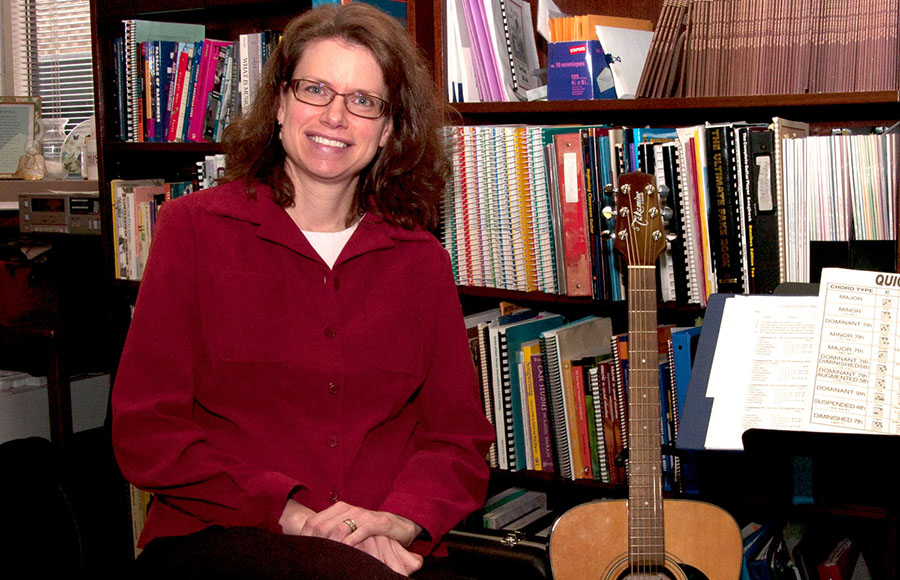BOONE, N.C. — Listening to music can be relaxing, invigorating or charged with emotions.
Dr. Christine Leist, an assistant professor of music therapy at Appalachian State University, thinks music also can benefit women who have had or are at risk of heart attack.
She is seeking women between the ages of 50 and 80 for a research study this summer to learn if her hypothesis is correct.
Leist’s research is an extension of her dissertation completed while at Michigan State University as well as her personal experience with someone who had heart disease.
“I became interested in heart disease and the applications of music therapy after my mother died suddenly of a heart attack,” Leist explained. “We didn’t know she had heart disease. So when I began my dissertation, I wondered if there were beneficial interventions in music therapy that could be helpful for people with heart disease.”
A preliminary study conducted for her dissertation found that music therapy appeared to decrease tension and anxiety for those participating in the therapy. “I also found an unexpected result – an increase in vigor and activity,” she said. “If you can use music therapy to decrease, tension, anxiety or depression and also increase vigor and activity, that would be really powerful especially for those who are really motivated to follow the exercise and diet protocols that their physician has recommended.”
Leist’s latest research will focus solely on women who have heart disease and how listening to relaxing music with images as well as singing can help them reduce any stress and anxiety that accompany their the diagnosis and motivate them to become more active.
Leist is being assisted in her work by Alexa Dorris, a graduate student from Indianapolis enrolled in the music therapy program in the Hayes School of Music and a recipient of a university Graduate Research Associate Mentor (GRAM) program. The GRAM program provides graduate students with stipend for approximately 20 hours a week of work for and with their graduate faculty mentor.
“Women with heart disease tend to be diagnosed later in life and they tend to die quickly after the diagnosis,” Dorris said. “Research suggests that’s because stress and emotional factors are more of a risk factor for women who have heart disease, especially as they tend to put family first which can affect lifestyle factors such as overeating or lacking of energy or vigor to do things.”
Leist says her field can be challenging for those who don’t understand what music therapy is. “My specialty is adults with medical needs. Music therapy with older adults with dementia and Alzheimer’s helps them reconnect with their world or have meaningful interactions with others. Calming music can engage the parasympathetic nervous system and help calm patients. Music therapy can also help patients manage pain. It’s a powerful gift to be able to take your mind elsewhere by listening to music,” she said.
For more information, contact Leist at [email protected] or 828-262-6663.
What do you think?
Share your feedback on this story.
About the Hayes School of Music
The Hayes School of Music prepares young musicians for professional lives as performers, composers, music educators, music therapists, conductors and music industry professionals, ensuring the next generation of musical leadership for the state, region and nation. Noted for quality instruction by national and internationally recognized faculty musicians, the school offers four undergraduate degree programs and three graduate-level programs. Learn more at https://music.appstate.edu.
About Appalachian State University
As a premier public institution, Appalachian State University prepares students to lead purposeful lives. App State is one of 17 campuses in the University of North Carolina System, with a national reputation for innovative teaching and opening access to a high-quality, cost-effective education. The university enrolls more than 21,000 students, has a low student-to-faculty ratio and offers more than 150 undergraduate and 80 graduate majors at its Boone and Hickory campuses and through App State Online. Learn more at https://www.appstate.edu.




![How NCInnovation Is Rethinking Economic Development in North Carolina [faculty featured]](/_images/_posts/2026/02/rethinking-economic-development-600x400.jpg)







